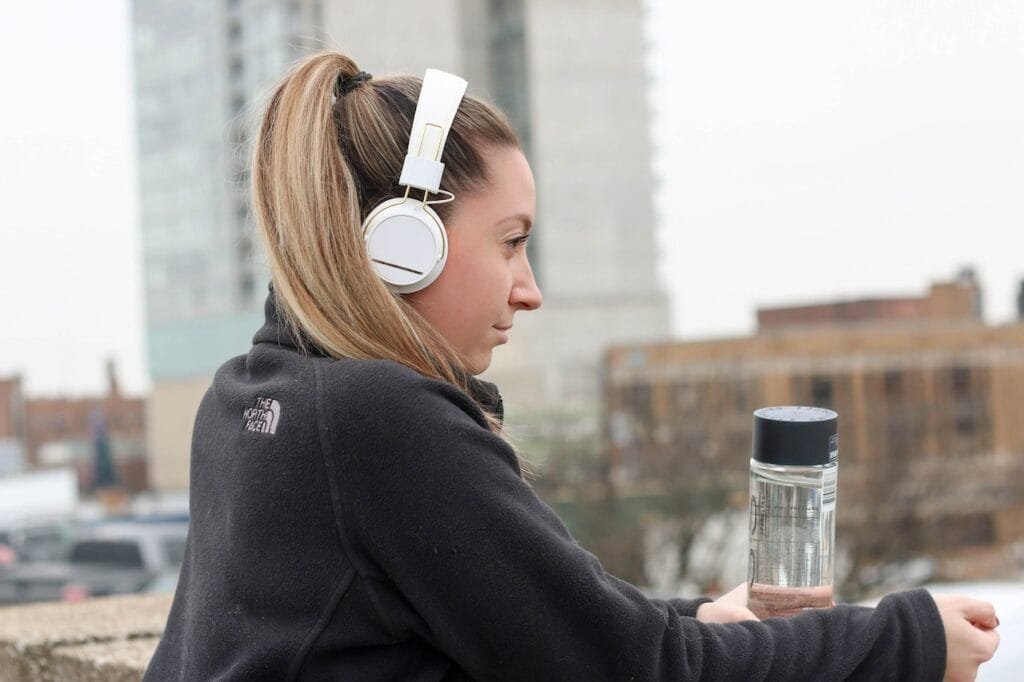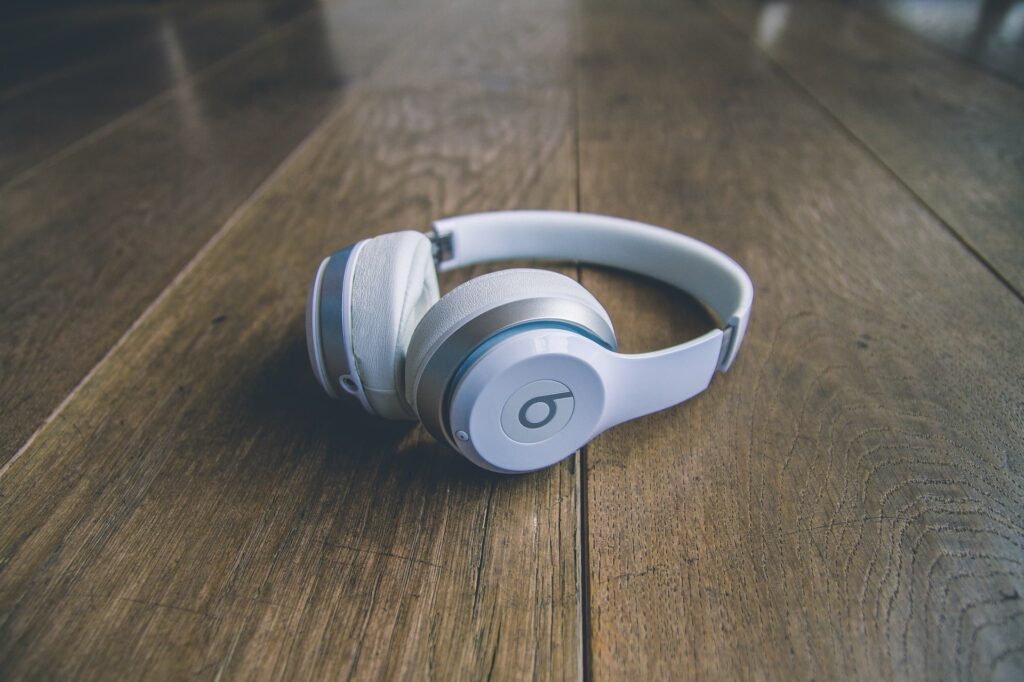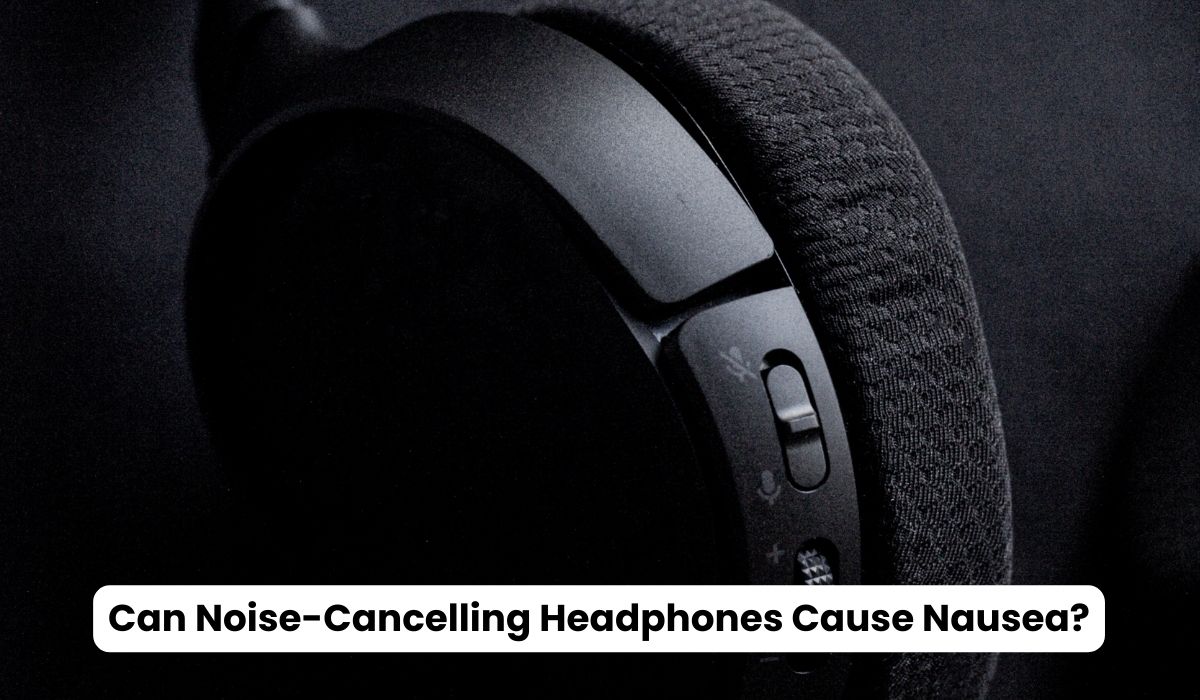Noise-canceling headphones have become increasingly popular for their ability to block out external noise and create a more immersive audio experience. While they can be an excellent tool for focus and relaxation, some people have reported feeling nauseous or dizzy when using these headphones for extended periods. This has raised concerns about the potential health risks associated with noise-canceling headphones and sparked debate about whether they are safe to use regularly.
In this article, we will explore can noise-canceling headphones cause nausea.
Table of Contents
Definition of Noise-Canceling Headphones:

Noise-canceling headphones are a type of headphones designed to reduce or eliminate external noise. They use a technology that actively cancels out the sound waves that reach your ear, resulting in a quieter listening experience. The technology is often called Active Noise Control (ANC) or Active Noise Cancellation (ANC).
The basic principle behind noise-canceling headphones is to capture the sound waves around you and then produce an inverse wave that cancels out the original wave. This process is done by using microphones that are built into the headphones to capture the sound waves from outside. The captured sound waves are then processed by the headphones’ built-in electronics, which generate an inverted wave that is then played back through the headphones. The inverted wave cancels the original sound wave, reducing or eliminating the external noise.
Passive and active noise-canceling headphones are both available. Passive noise-canceling headphones work by blocking out external noise through physical means, such as using noise-isolating ear cups that prevent external noise from reaching your ears. On the other hand, active noise-canceling headphones use the earlier technology to cancel out external noise actively.
While noise-canceling headphones are often associated with air travel, they are also popular among music enthusiasts and professionals who require a quieter listening environment. They can be beneficial in environments with much background noise, such as a busy office or street.
However, it is essential to note that noise-canceling headphones are imperfect and may not eliminate all external noise. Additionally, some users have reported experiencing side effects such as headaches, ear pain, and nausea when using noise-canceling headphones for extended periods. Therefore, using noise-canceling headphones responsibly and taking regular breaks are recommended to avoid potential adverse effects.
Can Noise-Cancelling Headphones Cause Nausea?

Noise-canceling headphones have become increasingly popular in recent years, allowing users to enjoy their favorite music or audio content without being disturbed by external noise. However, some people have reported experiencing nausea or discomfort when using these headphones for an extended period. So, the question arises – can noise-canceling headphones cause nausea?
The short answer is yes. Noise-canceling headphones can cause nausea. However, it is not a common side effect; only a few people have reported experiencing it.
The reason why noise-canceling headphones can cause nausea is due to their unique technology. These headphones use a microphone to pick up external sounds and then create an opposite sound wave to cancel out the noise. This process creates a vacuum-like sensation in the ear, leading to discomfort and dizziness. If you are particularly sensitive to this sensation, it can cause nausea or motion sickness-like symptoms.
Another factor contributing to nausea is the volume at which you use your noise-canceling headphones. If you are listening to music or audio content at a high volume for an extended period, it can cause a feeling of pressure in your ears, leading to discomfort and nausea.
So, what can you do to prevent nausea when using noise-canceling headphones? Here are a few tips:
1. Take Breaks
If you use noise-canceling headphones for an extended period, take frequent breaks to rest your ears.
2. Lower the Volume
Keep the volume of your headphones at a comfortable level to prevent pressure and discomfort in your ears.
3. Choose the Right Fit
Ensure your headphones fit well and are not too tight, which can cause discomfort and pressure in your ears.
4. Stay Hydrated
Drinking plenty of water can help alleviate nausea and other symptoms associated with motion sickness.
While noise-canceling headphones can cause nausea, it is not a common side effect. By following the tips above, you can reduce your risk of experiencing discomfort and enjoy your music or audio content without any issues.
Symptoms of Nausea:

Nausea is a familiar sensation that people experience from time to time. It’s a feeling of discomfort in the stomach, which can range from mild nausea to a strict sense of sickness. Nausea can also be accompanied by other symptoms such as vomiting, dizziness, and sweating.
There are many causes of nausea, including motion sickness, pregnancy, certain medications, infections, food poisoning, and medical conditions such as gastroesophageal reflux disease (GERD) and migraines.
Some of the most common symptoms of nausea include:
- A feeling of sickness or unease in the stomach
- Food aversions or loss of appetite
- Increased saliva production or excessive swallowing
- Sweating or clammy skin
- Dizziness or lightheadedness
- Rapid breathing or shallow breathing
- Upset stomach or cramping
- Vomiting or retching
Nausea can be a very uncomfortable and distressing experience, especially if it’s accompanied by vomiting. If you’re experiencing persistent nausea or vomiting, seeking medical attention is essential, as it can indicate a more serious underlying condition.
In some cases, simple home remedies may help to alleviate mild nausea. These include drinking ginger tea, eating small, frequent meals, avoiding solid odors or flavors, and getting plenty of rest.
However, if your nausea is severe or accompanied by other concerning symptoms, it’s essential to see a doctor. They can help to diagnose the underlying cause of your nausea and provide appropriate treatment to alleviate your symptoms and improve your overall health and well-being.
Also Read: Can I Wear Headphones During A Root Canal?
Advantages of Noise-Canceling Headphones:

Noise-canceling headphones are becoming increasingly popular today and for a good reason. These headphones offer several advantages, making them a must-have accessory for anyone who wants to enjoy high-quality audio without distractions.
One of the most significant advantages of noise-canceling headphones is their ability to block out external noise. This feature is especially useful in noisy environments such as public transportation, busy streets, or crowded cafes. You can enjoy your music or podcast with noise-canceling headphones without turning up the volume to drown out external noise. This is good for your ears and allows you to focus better on your content, which can improve your productivity.
Another advantage of noise-canceling headphones is that they can help reduce stress levels. When you’re in a noisy environment, your body naturally responds by increasing stress levels. This can lead to fatigue, headaches, and even anxiety. With noise-canceling headphones, you can block out external noise and create a peaceful environment, which can help reduce stress levels and promote relaxation.
Noise-canceling headphones also provide better sound quality. Because they block out external noise, you can hear your music or podcast more clearly, without increasing the volume. This not only improves the listening experience but can also help protect your ears from damage caused by prolonged exposure to loud sounds.
Finally, noise-canceling headphones are ideal for traveling. Whether on a long flight or a road trip, these headphones can help you block out the noise and create a more comfortable environment. This is especially important if you’re traveling with children or trying to get some work done.
Disadvantages of Noise-Canceling Headphones:

While noise-canceling headphones have many advantages, they also have some disadvantages that should be considered before purchasing them. Here are a few of the drawbacks of noise-canceling headphones:
Firstly, noise-canceling headphones can be expensive compared to regular headphones. The technology to cancel out external noise requires additional hardware and processing power, which can drive the price. If you’re on a budget, there may be better options than noise-canceling headphones.
Secondly, noise-canceling headphones can cause discomfort for some users. The headphones use pressure to create a seal around your ears, which can cause some users to feel uncomfortable after prolonged use. Additionally, the pressure can cause a feeling of “pressure headache” in some users. It’s essential to find headphones that fit well and are comfortable for long-term use if you plan on using noise-canceling headphones regularly.
Another disadvantage of noise-canceling headphones is that they can interfere with situational awareness. When you’re wearing noise-canceling headphones, you may not hear important sounds around you, such as approaching traffic or a person trying to get your attention. This can be dangerous in certain situations, such as when walking or cycling in traffic.
Additionally, noise-canceling headphones can hurt the sound quality of your audio. Some users have reported that noise-canceling headphones can create a “hissing” or “static” sound when used in noisy environments. This can be distracting and reduce the overall quality of your listening experience.
Finally, noise-canceling headphones require batteries or a power source to function. You need to remember to charge the headphones or replace the batteries to use the noise-canceling feature, which defeats the purpose of purchasing noise-canceling headphones in the first place.
5 Reasons You Have Nausea:
Conclusion:
While noise-canceling headphones can be an excellent tool for reducing unwanted background noise and improving concentration, they may also cause nausea in some individuals. The exact causes of this phenomenon still need to be fully understood. Still, it may be related to the pressure changes in the ear canal due to noise-canceling technology.
If you experience nausea or another discomfort while using noise-canceling headphones, it is essential to take breaks, adjust the volume, and seek medical advice if necessary. As with any technology, using noise-canceling headphones responsibly and paying attention to your body’s reactions to ensure a safe and comfortable listening experience is essential.
FAQs
What is noise-canceling technology?
Noise-canceling technology is a feature in headphones that reduces unwanted ambient noise by using microphones to detect and cancel out external sounds.
Are all noise-canceling headphones likely to cause nausea?
No, not all noise-canceling headphones are likely to cause nausea. The likelihood of experiencing nausea may vary depending on the headphones’ specific brand, model, and fit.
Should I stop using noise-canceling headphones if I experience nausea?
If you experience nausea while using noise-canceling headphones, it is a good idea to take a break and see if the symptoms subside. If you continue to experience nausea or another discomfort, you may want to consider using a different type of headphones or seeking medical advice.
